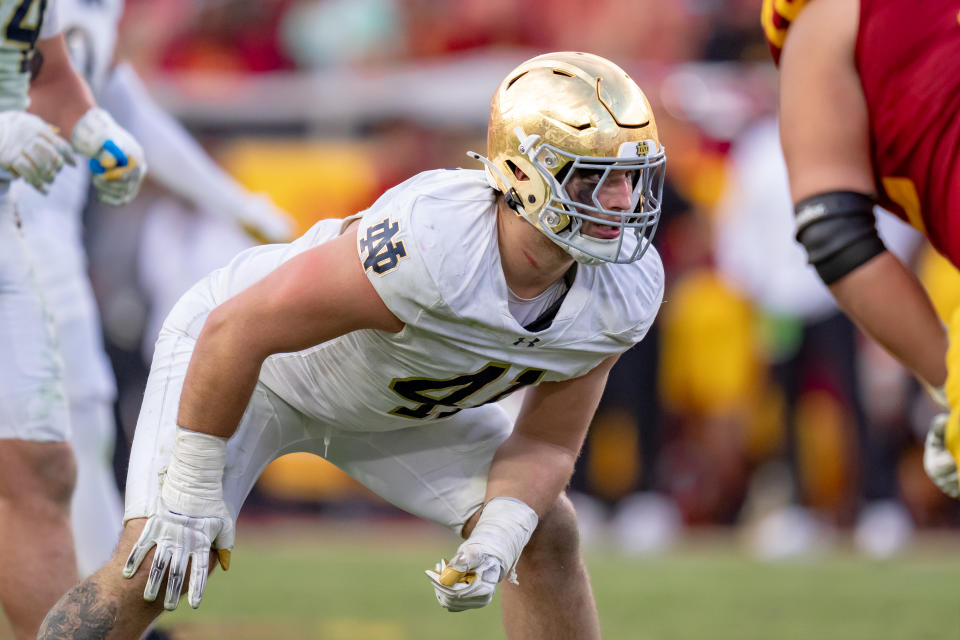
(Bloomberg) — There are many well-established symbols of the froth building, yet again, in financial markets. There’s Bitcoin hovering around $100,000 or the Nasdaq hitting record high after record high or, for that matter, the wild bidding war that broke out in Manhattan the other day for the banana-and-duct tape “art.”
Most Read from Bloomberg
But there’s also this: the SPAC, and its band of patrons and peddlers, is back.
Howard Lutnick, the CEO of brokerage Cantor Fitzgerald LP and Donald Trump’s nominee for commerce secretary, raised a $100 million blank check in August and then, days before the elections, filed for what would be a 10th SPAC; Michael Klein pooled $287.5 million in May; and Harry Sloan and Eli Baker’s Eagle Equity Partners debuted its ninth SPAC in late October.
In total, 50 special-purpose acquisition companies have raised $8.7 billion since April, more than double the amount raised in all of 2023, according to data from SPAC Research.
It’s all somewhat improbable. When last in the public spotlight two years ago, the market for SPACs — obscure IPO-like deals that had become a craze during the pandemic — was crashing. The Federal Reserve was raising interest rates, fear had replaced FOMO and the SPAC was essentially left for dead. Several of the deals orchestrated by Lutnick, Klein and Eagle Equity Partners cratered more than 90% from their peaks.
So the comeback now, so soon after the collapse, is shocking even to some industry insiders.
“It is interesting to see that the SPAC market has endured at the pace that it has,” said Jennifer Cheng, global M&A chair at Reed Smith with experience leading business combinations with SPACs. “One would think that the underperformance of so many of these public companies post-business combination would be enough to serve as a cautionary tale.”
Nearly half of the more than 450 ex-SPACs that are still publicly traded have wiped out more than 90% of their value since they debuted, data from SPAC Research analyzed by Bloomberg show. That’s on top of the dozens that went bankrupt or were acquired at fire sale prices shortly after debuting on public exchanges.
The fallout has resulted in lawsuits from regulators and retail investors who blame SPAC sponsors for misleading buyers about their structure and having early contact with potential targets.
Just last week, Cantor Fitzgerald agreed to pay $6.75 million to settle US Securities and Exchange Commission allegations that it misled investors in two blank-check firms before their stock-market debuts. Many high-profile dealmakers have been sued since the boom went belly up.
The path forward for Cantor Fitzgerald’s blank checks that are in need of deals is unclear. Lutnick handed over the reins of a to-be-listed SPAC seeking to raise $200 million to his son, Brandon.
Still, Howard Lutnick was the head of six SPACs to complete deals since the onset of Covid-19, with only one company — GCM Grosvenor Inc. — delivering investors a long-term return. Similarly, Klein, a former Citigroup Inc. banker, has a lone winner in Oklo Inc., a developer of advanced nuclear systems backed by Sam Altman. Two of Klein’s five completed deals are trading for the equivalent of pennies.
Even the Eagle Equity team, which took DraftKings Inc. public in April 2020 and helped spark the blank-check mania, has had “duds,” said Julian Klymochko, chief executive officer of Accelerate Financial Technologies, who said he likes the team and owns their newest SPAC, Bold Eagle Acquisition Corp.
The team’s biggest losers are Ginkgo Bioworks Holdings Inc. and Skillz Inc., which have each plunged more than 98%.
However, the lackluster track records aren’t keeping investors seeking a risk-free arbitrage play from buying at the IPO. And hopes that the current market frenzy can fuel the SPAC arena for more than a hot moment to churn up quick profits has caught the attention of others.
In the past three months, speculators treated some new de-SPACs, companies that complete a deal with a blank-check firm, like a casino from the go-go days.
While many of the blank-check firms and de-SPACs have seen some pops due to the tiny amount of shares available for trading, they’ve plunged. The median performance for the group of dozen of new debutantes in the past three months from their $10 IPO price is -68%.
For SPAC backers, pooling capital and filing for new blank checks could just be positioning for the expected rebound of the traditional IPO market. A SPAC could be an option for companies seeking funds and a public listing.
Unlike in the mania of 2020 and 2021 when sponsors were joining bidding wars for startups, there’s no shortage of deal targets. Nearly $3 trillion worth of private equity-held companies are in need of an exit and there are hundreds of closely-held tech companies that are looking for cash.
“A SPAC wouldn’t be their first choice but there are no other choices,” said David Erickson, formerly co-head of global equity capital markets at Barclays Plc and Lehman Brothers and now a lecturer at Columbia Business School. “If there’s no other game in town and you’re looking to exit a portfolio company, this could be a way to do that.”
That said, Trump’s return to the White House in a matter of weeks and his promises of deregulation could quickly prompt a return to the frenzied days of the industry. The media company that bears his initials as its ticker did complete a SPAC merger of its own earlier this year.
Most Read from Bloomberg Businessweek
©2024 Bloomberg L.P.
EMEA Tribune is not involved in this news article, it is taken from our partners and or from the News Agencies. Copyright and Credit go to the News Agencies, email news@emeatribune.com Follow our WhatsApp verified Channel



